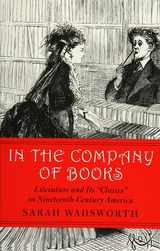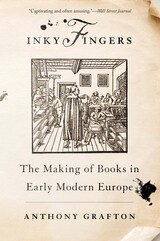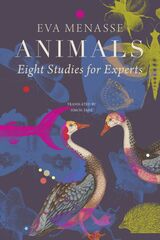4 start with I start with I


With sections focusing on segmentation by age, gender, and cultural status, In the Company of Books analyzes the ways authors and publishers carved up the field of literary production into a multitude of distinct submarkets, differentiated their products, and targeted specific groups of readers in order to guide their book-buying decisions. Combining innovative approaches to canonical authors such as Nathaniel Hawthorne, Louisa May Alcott, Mark Twain, and Henry James with engaging investigations into the careers of many lesser-known literary figures, Sarah Wadsworth reveals how American writers responded to—and contributed to—this diverse, and diversified, market.
In the Company of Books contends that specialized editorial and marketing tactics, in concert with the narrative strategies of authors and the reading practices of the book-buying public, transformed the literary landscape, leading to new roles for the book in American culture, the innovation of literary genres, and new relationships between books and readers. Both an exploration of a fragmented print culture through the lens of nineteenth-century American literature and an analysis of nineteenth-century American literature from the perspective of this subdivided marketplace, this wide-ranging study offers fresh insight into the impact of market forces on the development of American literature.

An Open Letters Review Best Book of the Year
“Grafton presents largely unfamiliar material…in a clear, even breezy style…Erudite.”
—Michael Dirda, Washington Post
In this celebration of bookmaking in all its messy and intricate detail, Anthony Grafton captures both the physical and mental labors that went into the golden age of the book—compiling notebooks, copying and correcting proofs, preparing copy—and shows us how scribes and scholars shaped influential treatises and forgeries.
Inky Fingers ranges widely, from the theological polemics of the early days of printing to the pathbreaking works of Jean Mabillon and Baruch Spinoza. Grafton draws new connections between humanistic traditions and intellectual innovations, textual learning and the delicate, arduous, error-riddled craft of making books. Through it all, he reminds us that the life of the mind depends on the work of the hands, and the nitty gritty labor of printmakers has had a profound impact on the history of ideas.
“Describes magnificent achievements, storms of controversy, and sometimes the pure devilment of scholars and printers…Captivating and often amusing.”
—Wall Street Journal
“Ideas, in this vivid telling, emerge not just from minds but from hands, not to mention the biceps that crank a press or heft a ream of paper.”
—New York Review of Books
“Grafton upends idealized understandings of early modern scholarship and blurs distinctions between the physical and mental labor that made the remarkable works of this period possible.”
—Christine Jacobson, Book Post
“Scholarship is a kind of heroism in Grafton’s account, his nine protagonists’ aching backs and tired eyes evidence of their valiant dedication to the pursuit of knowledge.”
—London Review of Books

READERS
Browse our collection.
PUBLISHERS
See BiblioVault's publisher services.
STUDENT SERVICES
Files for college accessibility offices.
UChicago Accessibility Resources
home | accessibility | search | about | contact us
BiblioVault ® 2001 - 2024
The University of Chicago Press









